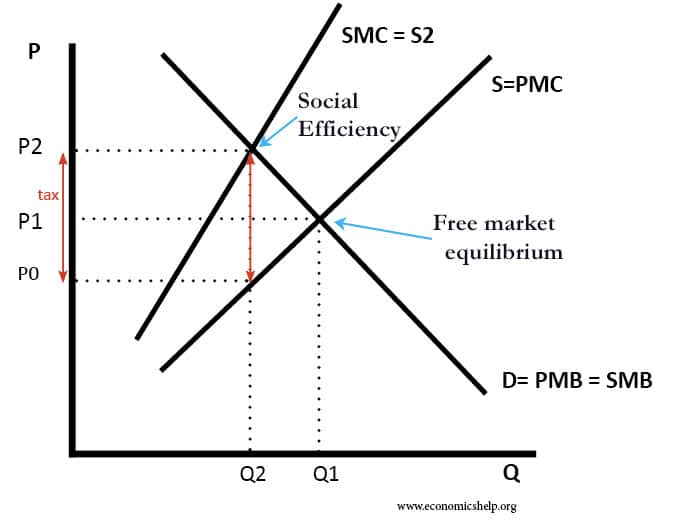As more and more products are made by firms, it can either result in positive externalities or negative externalities. The negative externalities created by a firm are things like pollution, firms either pollute the society with live in through their product itself or in the making of the product.
An example of a negative externality in a society is air pollution from cars. As we know, cars pollute the environment with its smoke as it releases carbon dioxides and such, this would then cause a negative effect for the society as a whole.

But here’s when the government should play a role to reduce this externality to benefit the society entirely. The government would put up taxes to that would reduce the supply of cars there are, which would help reduce the amount of negativity it causes.
In Singapore, a country known to be incredibly clean, the government plays a strong role in taxing the people to reduce the supply of cars. To buy a car in Singapore, the people must buy a permit, which would reduce their demand to buy the car. The price for a car is really expensive as well, which would also reduce their demand for a car. All the money from this, the government would use to develop a mass transit system which handles 4 million rides per day, more than trips with individual cars. Doing this would encourage the people to not spend lots of money and use the public transportation, which would reduce cars, reducing air pollution.














